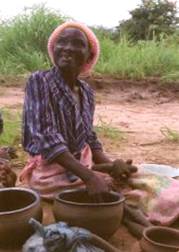|
|
Tanzanian Elderly 'Increasingly' at HIV Risk
Reuters
December 2, 2004

Ignorance, cultural practices and poverty are increasingly exposing the elderly in Tanzania to HIV infection, a report by HelpAge International said on Thursday.
The study found that most of the two million people above the age of sixty in the country of 35 million were illiterate and were missing out on information on Aids.
"Older people face risks of infection with Aids related illnesses due to their own sexual behaviors, because they lack knowledge of how to protect themselves," the report said.
"The risk is increased by customs such as polygamy and wife inheritance, as well as by their role as caregivers to people living with Aids."
The report said old women were spending 88 percent of their time looking after invalids or orphans, and many were resorting to giving sexual favors in exchange of basic needs such as food and water.
"Some elderly women go to the sea shore to buy fish directly from the fishermen, on the days when they have no money, they have to offer sex to the fishermen in order to get fish to feed the grandchildren," the report quoted an old woman from a coastal region as saying.
Most of the country's elderly people live in rural areas with no pensions unless they are retired civil servants. Many of them get by through the help of their adult children.
But with two million people infected by the HIV virus in Tanzania, the old people are now caring for those who traditionally were expected to care of them in their old age.
"No matter what, patients will always go back to parents to receive solace and love in their final moments," Abdul Jetha, country director of HelpAge International said.
"Older people are increasingly having to look after their children instead of the other way round, and when these die, they have to take care of the orphans."
There are about one million Aids orphans in the east African country, 64 percent of whom live with relatives above the age of 55, the study said.
"HIV is not an issue of young people any more, there is a new face of HIV/Aids that people need to talk about," Jetha said.
|
|



